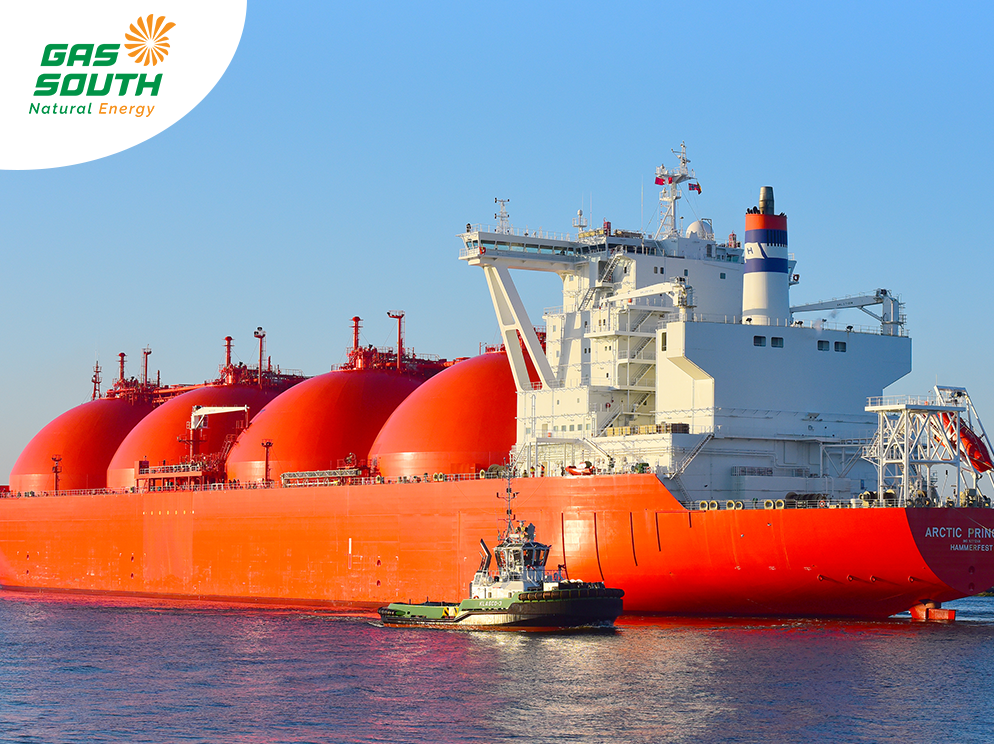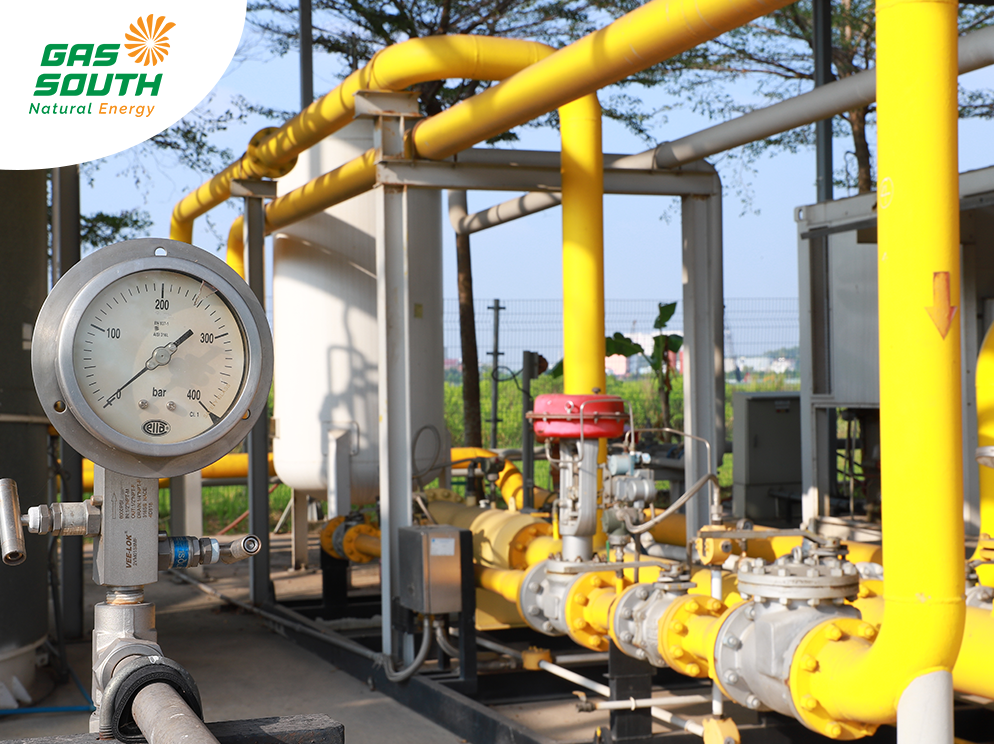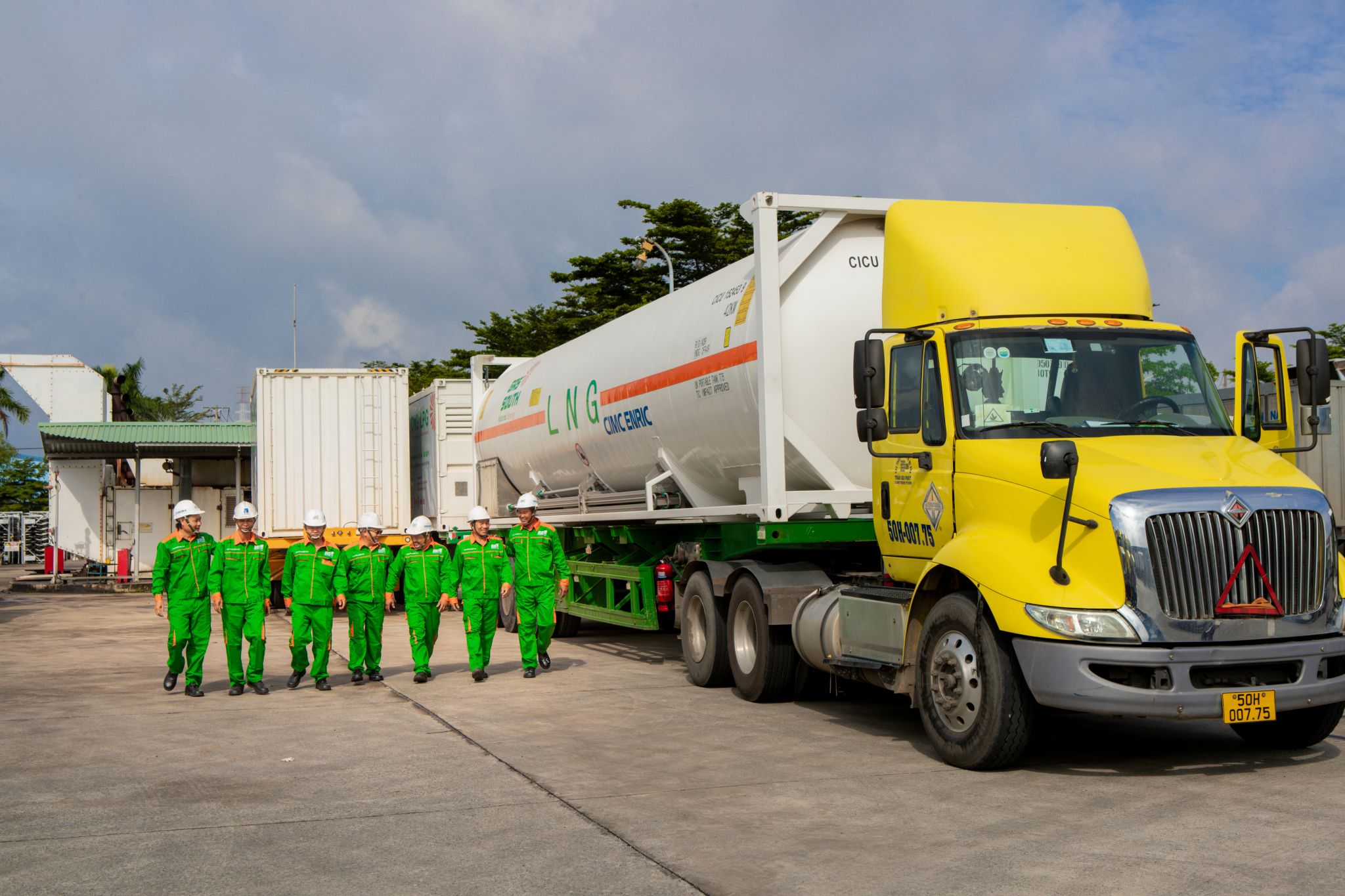Natural gas is an important source of natural energy that we use every day. In this article, we will learn more about natural gas from many different perspectives. We will discuss the main chemical substances of natural gas, common gaseous fuels, and its importance in daily life.
1. What is natural gas?
Natural gas is an important natural resource created from the fossilization of organic compounds in the ground over millions of years. The main chemical substances of natural gas include hydrocarbons such as methane (CH4), ethane (C2H6), propane (C3H8), and butane (C4H10), along with others such as nitrogen (N2), carbon dioxide (CO2), and hydrogen sulfide (H2S).
Natural gas is commonly found in natural gas deposits worldwide, and is widely used as an important source of energy for electricity generation, as fuel for transportation vehicles, and as fuel in industrial processes.

2. Advantages and disadvantages of natural gas
Natural gas is a natural energy source with many remarkable pros and cons.
Advantages of natural gas:
-
Eco-friendly: Natural gas makes a significant contribution to reduce carbon dioxide, prevent climate change. When compared to traditional energy sources such as oil and coal, natural gas can effectively reduce greenhouse gas emissions, which helps to protect the environment.
-
Cost savings: Natural gas is cheaper than many other energy sources, such as oil and electricity. Using natural gas in production and operation processes also helps to reduce operating and maintenance costs.
-
High efficiency: Natural gas has a high calorific value, allowing a large amount of energy to be generated from a small amount of gas. This means that you can make the most use of your energy source.
Disadvantages of natural gas:
-
Transportation and reservation: Natural gas can be compressed and transported by using specialized pipeline systems and equipment. Therefore, natural gas requires a large initial investment, complexity of infrastructure and high energy requirements.
-
Safety risks: Although natural gas is less explosive compared to other fuels, there are safety risks when not operating and using it properly. Using natural gas requires adherence to safety regulations to avoid accidents.
-
Availability limitations: Although natural gas has great potential for providing clean and sustainable energy, not every region has a plentiful supply of natural gas. This creates limitations on the ability to use and develop natural gas.
Despite its disadvantages, natural gas is still considered a first choice for providing clean and sustainable energy due to its potential to reduce environmental impact compared to traditional energy sources.

Frequently asked questions about natural gas
1. What is natural gas?
Natural gas is a compound of natural hydrocarbons, mainly including methane (CH4) and a small number of other hydrocarbons.
2. Why is natural gas important?
Natural gas is an important source of energy used in industries, transportation and power generation. It provides a clean energy source, helps reduce emissions and contributes to the sustainability of the energy system.
3. How to use natural gas?
Natural gas is used to generate electricity, fuel vehicles and use in the processing of various industries. Besides, natural gas is also used in household applications such as cooking and heating.
4. What are the benefits of using natural gas?
The use of natural gas offers many benefits, including: cost savings, reducing emissions and environmental pollution, increasing energy efficiency, and reducing the dependence on traditional energy sources.
5. What are the risks of using natural gas?
Although natural gas has many benefits, there are also risks such as the risk of fire and explosion, environmental pollution from gas leaks, and safety issues related to transportation and reservation. Because of those risks, this requires strict adherence to safety regulations so as to ensure the living environment and human health.
6. Where is natural gas available?
Natural gas exists in natural gas deposits and is extracted from oil and gas wells.
7. How is natural gas reserved and transported?
Natural gas can be reserved in pipelines and underground storage systems. To make it more convenient, it is usually compressed into a compressed gas form (Compressed Natural Gas - CNG) or cooled to become a liquid (Liquefied Natural Gas - LNG) for convenience during transportation.
8. What factors affect the price of natural gas?
The price of natural gas depends on many factors, including supply, demand, extraction and transportation costs, market conditions, etc.
9. Is natural gas renewable?
Natural gas is a renewable resource in a natural process. However, this regeneration process is very slow and cannot quickly serve current consumption demand, so it is very important to protect and utilize existing natural gas.
10. What technologies are related to natural gas?
Technologies related to natural gas include natural gas extraction and production processes, gas compression and chilling processes, storage and transport systems, as well as natural gas utilization technologies across industries, transport and electricity.
Readmore: The difference between liquified natural gas vs natural gas

Natural gas has been playing an important role in the energy and other sectors, while providing many environmental and economic benefits. However, the use and management of natural gas should be done carefully and sustainably to protect resources and the environment. If you have any other questions about natural gas, please do not hesitate to contact us or get more information from reliable sources.
-
Company Name: Southern Gas Trading Joint Stock Company
-
Head office: 4th Floor Petrovietnam Tower, No. 1-5 Le Duan, Ben Nghe Ward, District 1, Ho Chi Minh City
-
Phone: (84.28) 3910.0324 - 3910.0108
-
Fax: (84.28) 3910.0165
-
Website: http://www.pgs.com.vn
-
Zalo: 0938 390 379



